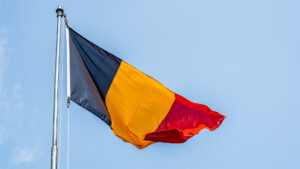A mix of punitive sanctions and market forces is working to keep Russian energy exports out of global refineries and power plants, and ultimately in the ground as Moscow will have fewer markets willing (or able) to take deliveries.
Russia’s network of export pipelines to Europe – the world’s largest – and the dependency they engendered has long been a key part of Moscow’s diplomatic tool kit. Germany’s import dependence in particular gets a lot of attention, as it rightly should. As Europe’s largest economy and the ostensible leader of the European Union, one could argue that Berlin’s purchase power gives it significant leverage vis-à-vis Russia. But Germany’s long-standing reticence in challenging Russian aggression (and its current slow-walking of energy sanctions against Russia) is based on equal parts of economic reality and fear. No one knows this better than the Russians.
It’s no accident. There is no other power on the Northern European Plain that can boast Germany’s capital generation potential–capital that Germany has repeatedly used to build and arm a military that threatens Russian security. Few countries along Russia’s Western flank can match Germany’s repeated, historic threats to Russian ambitions and security. Except for Turkey.
It’s therefore no surprise that the two countries with direct pipeline access to Russian energy supplies are the wealthiest European member of NATO – Germany – and the second largest military after the United States – Turkey. Add in the fact that Ankara controls what flows in and out of the Black Sea (home to Russia’s only warm water ports) and you can see the incentive for Russia to incentivize Germany and Turkey to see things its way.
Here at Zeihan On Geopolitics we select a single charity to sponsor. We have two criteria:
First, we look across the world and use our skill sets to identify where the needs are most acute. Second, we look for an institution with preexisting networks for both materials gathering and aid distribution. That way we know every cent of our donation is not simply going directly to where help is needed most, but our donations serve as a force multiplier for a system already in existence. Then we give what we can.
Today, our chosen charity is a group called Medshare, which provides emergency medical services to communities in need, with a very heavy emphasis on locations facing acute crises. Medshare operates right in the thick of it. Until future notice, every cent we earn from every book we sell in every format through every retailer is going to Medshare’s Ukraine fund.
And then there’s you.
Our newsletters and videologues are not only free, they will always be free. We also will never share your contact information with anyone. All we ask is that if you find one of our releases in any way useful, that you make a donation to Medshare. Over one third of Ukraine’s pre-war population has either been forced from their homes, kidnapped and shipped to Russia, or is trying to survive in occupied lands. This is our way to help who we can. Please, join us.








